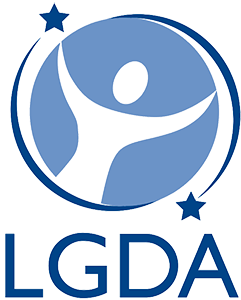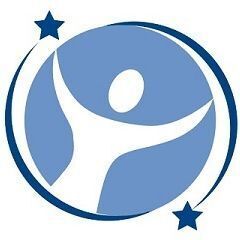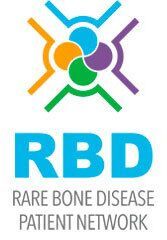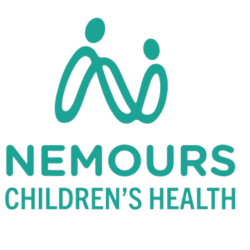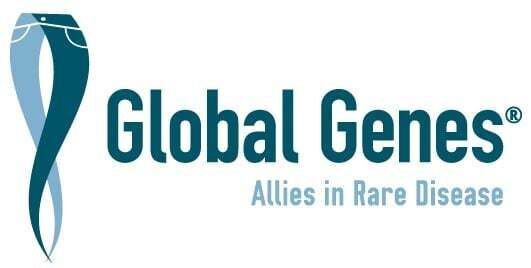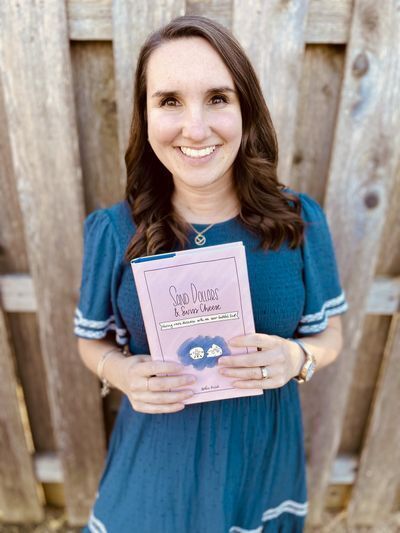
Amber McCall has a rare disease, but her experience with it isn’t atypical.
Years of symptoms didn’t add up. Doctors were confused by test results that didn’t lead to a definitive diagnosis.
Much of her childhood was spent in the school nurse’s office with migraines. Medical professionals couldn’t figure it out.
When McCall contracted meningitis for the second time in her early 20s, she underwent a battery of tests. One scan led to a diagnosis of Chiari malformation in which the brain stem hangs below the skull. That, doctors figured, was the source of her migraines.
During decompression surgery, it was discovered her spine was riddled with holes. It was determined McCall had lymphangiomatosis.
She soon found the LGDA, the world’s preeminent organization for people with complex lymphatic anomalies. Through the organization, McCall connected with Dr. Michael Kelly, who in 2021 became LGDA executive director.
“The day that I met him was one of the best days of my life,” McCall said.
After going through many doctors, “I didn’t really feel heard until I met Dr. Kelly.”
Kelly asked to hear every symptom McCall experienced, even the small and strange ones. He nodded after each, and at the end said they were all related to lymphangiomatosis.
“I finally had a doctor who knew what I was experiencing and why I was experiencing those symptoms,” McCall said.
It was rare to be diagnosed as an adult, and McCall faced multiple unique challenges.
“Rare is a good thing when it comes to gemstones or collector’s items, but rare can also be isolating, intimidating, and scary when it comes to a disease or diagnosis. For the first 31 years of my life, including eight years post-diagnosis, I hadn’t met anyone in person that had the same disease as me,” McCall said.
“That all changed the summer of 2018. The LGDA was hosting their second Patient and Family Conference in Texas, and my husband Chris and I decided to attend.”
McCall found a support network and was able to put some of her medical puzzle pieces together.
“It was phenomenal. We listened to world-class researchers and experts who knew everything there was to know about our particular diseases. That wasn’t a lot of information, but it was more than we had heard up to this point.,” McCall said.
Her history with the disease began to make sense.
“One by one, I named the little pieces of my story that suddenly had meaning. After each revelation, this person sitting in front of me confirmed that these issues, including the eye size that had led to my awkward nickname in elementary school and the three-and-a-half-inch cyst they found when I had my wisdom teeth removed the year before were each a result or symptom of my newly named disease,” she said.
“The relief and validation flooded over me. The moment that many people with rare diseases dream of was finally happening for me. I had a doctor, listening to me, confirming that I wasn’t mistaken, it was not all in my head, and there certainly was a reason for the crackling in my knee, the daily migraines, the chronic pain, and the malformation they had just corrected with surgery.”
McCall got to meet others who have gone through similar experiences.
“It’s not easy being an expert on your own body. Most people won’t believe you. Most people will give you the advice they think is right (based on their bodies). Most people won’t understand. Most people will judge you, call you lazy, or wonder why they can’t ‘see’ your symptoms,” she said.
“Find the ones who do believe you, keep their advice to themselves, do understand, and aren’t judging you. Those are the good ones.”
McCall also got a look at the bigger picture of having a rare disease and the challenges doctors face in developing treatments and a cure.
“It is fascinating yet frustrating, to have a disease that even the leading lymph experts know very little about, but I am grateful for those who are passionate about learning more about lymphatic anomalies and trying to find effective treatments and possibly a cure,” McCall said.
“During the conference, we also learned that doctors who choose to go into research, especially for rare diseases that have little mainstream attention, must fundraise their own salaries and financial support for projects.”
McCall tells her inspiring life story in the book, “Sand Dollars and Swiss Cheese,” and hopes to help others through whatever life struggles they face.
McCall recounts the fears, joys, frustrations, and triumph, as well as the hopeful moments when she chose to put her trust in the God who is bigger than all of it. She prays that her life experiences will encourage you, give you strength to face your mountains, and open you to the grace that is so abundantly available to those who choose joy. Choosing joy and hope through the darkest moments strengthened her faith and allowed her to continue to pursue a career in education, start her own business and share her faith with others.
“Sand Dollars and Swiss Cheese” is available at
